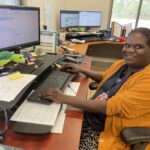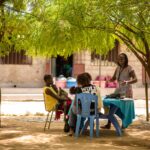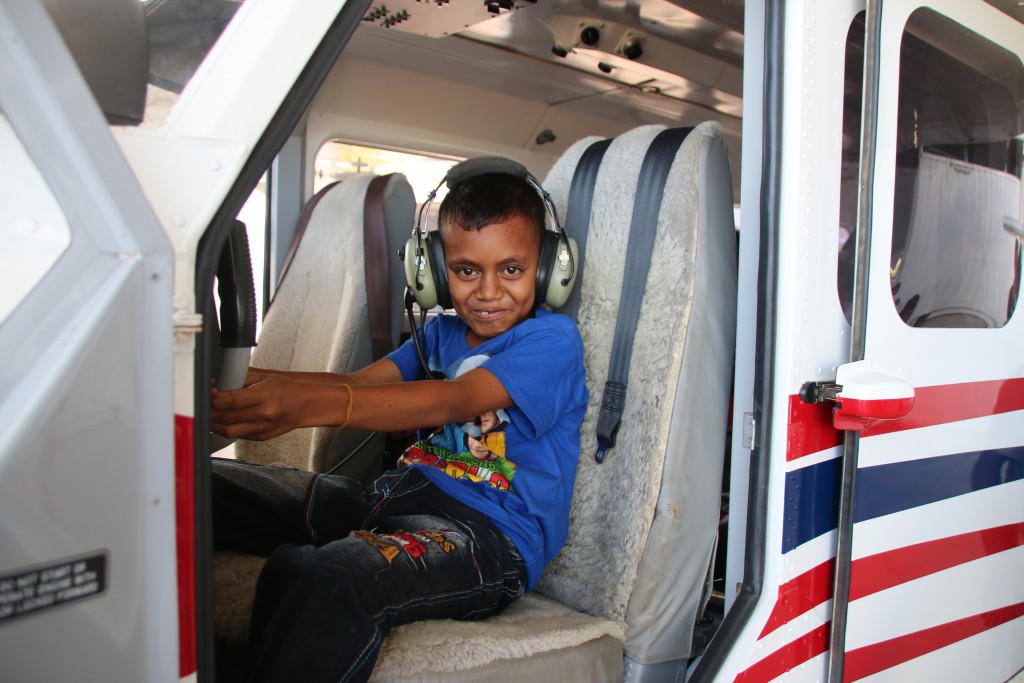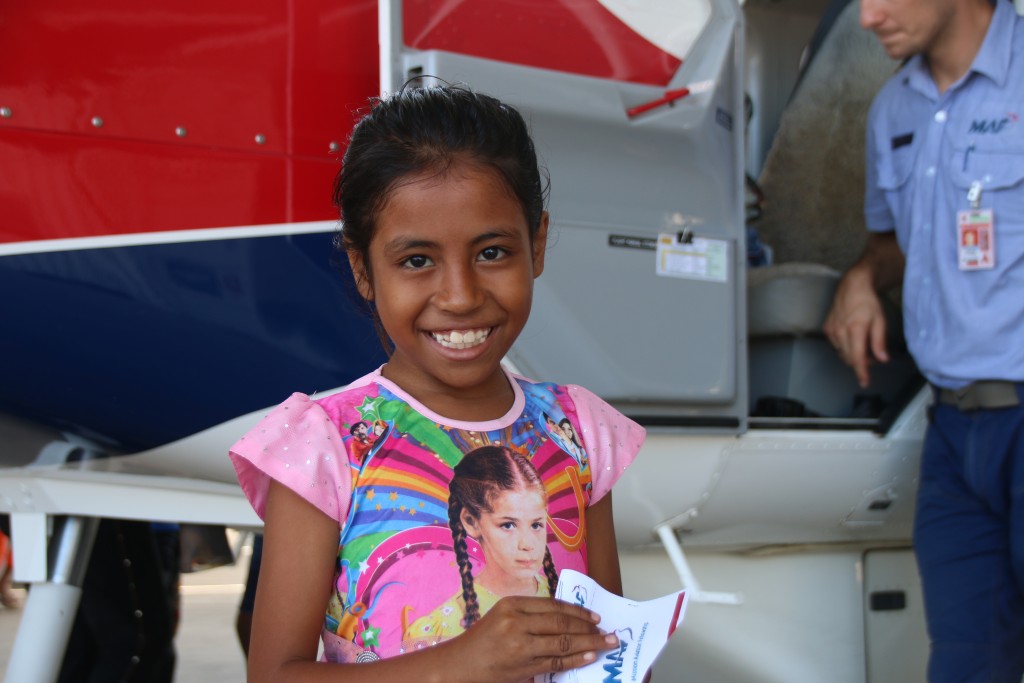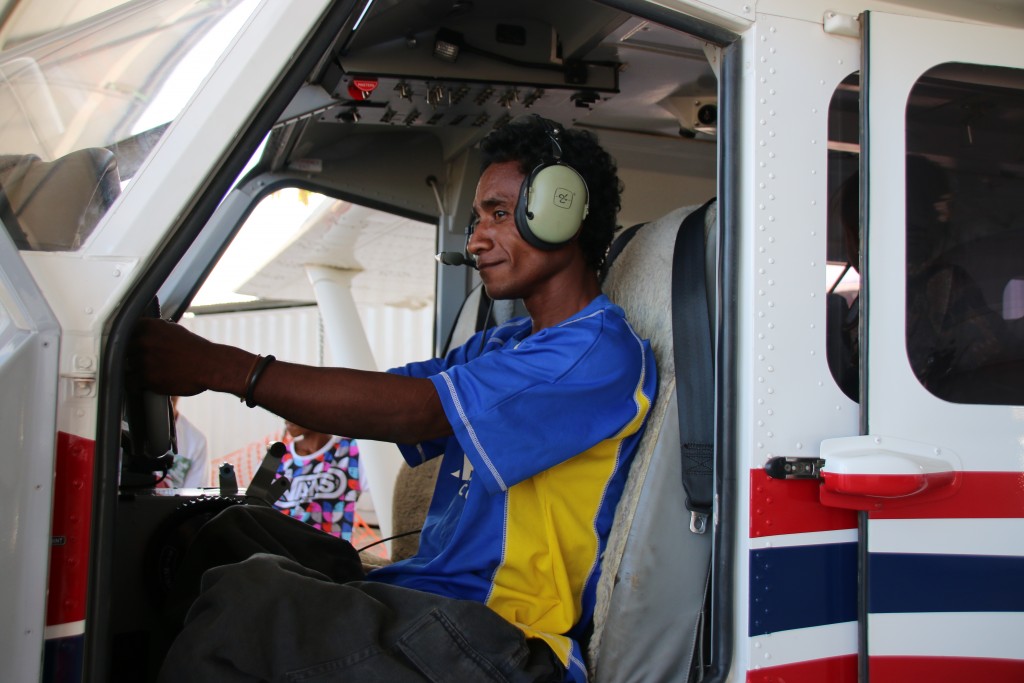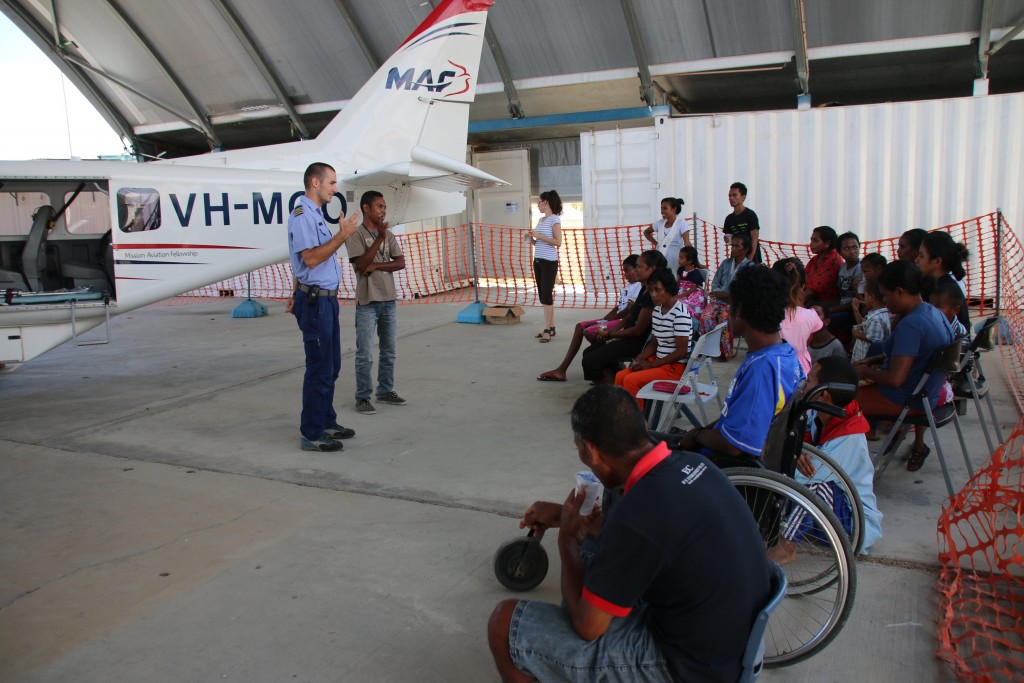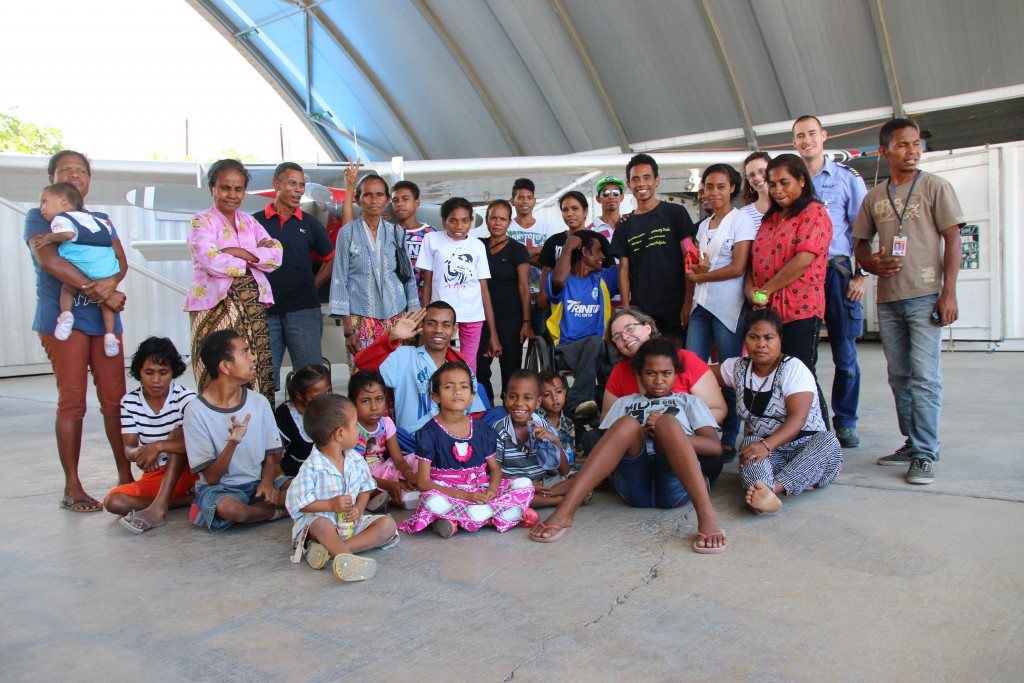A helping hand for disabled children
When God calls a pilot or an engineer to serve Him by working with MAF that often means He is calling a spouse and even a family too. The worldwide MAF family is made up of people who are single, married, families with children of all ages and the widowed. He uses each person for His purposes in the places they live in, be that Milingimbi, South Sudan or Dili, in Timor-Leste.
For a pilot and an engineer, the job description they receive when they begin working MAF is pretty straightforward. They are to fly the plane or maintain the aircraft to the best of their abilities. Of course, their days in reality are filled up with many more tasks than that, but they have a starting point to fulfilling their role.
As wife to a MAF engineer or a pilot, the task of what to do in this new place is often not so straight forward. Sometimes the options are so numerous, they don’t know what would be the best usage of their time and energy. In other places, the opportunities are more limited, or perhaps the stage of family life with small children, limits what can be done outside the home.
God has a plan and purpose for everyone
Deborah Moser and Kim Job have been serving in Timor-Leste for just over a year. Both educators by training, they both wondered how they could use their skills, passions and interests in their new home. As they settled into life in a new country, there was lots to do. Many new people to meet, homes to set up, a new language to learn, a hot and humid climate to adjust to. Learning to do life in a new place takes time, as even simple tasks like grocery shopping are so much more complicated than in our home countries. As they adjusted to life in Dili, Timor-Leste, they happened to meet a missionary lady who had been in Timor-Leste for some time. One of her tasks here had been to assist at Liman Hamutuk (Hands Together), a centre for disabled people in Hera, a town just east of Dili.
Deborah, who worked with disabled children in her home country of Switzerland, was very eager to hear more and so went to visit and began volunteering there each Wednesday morning. The centre, Liman Hamutuk, was established by a Brazilian missionary named Branca who has worked in Timor-Leste for fifteen years. Working to help the people of her community in Hera she has established a clinic, a church and this centre for the families in the area who have a disabled person in them. Each Wednesday, the centre’s mini bus collects students and their carers, bringing them to the centre for a morning of activities, breakfast, songs and lunch, before heading home again. A doctor is usually around to help out with medical issues too.
The first encounter
Deborah says, “On my very first visit at the centre I met a group of kids with no chance of getting some education, because of their disabilities, but with a hunger to learn and to embrace life. Among their mums I saw shame and insecurity. And I saw Timorese staff with a heart for these people but with very little knowledge and resources to meet this needs. My heart went out to these kids and I knew this was God’s place for me to be a blessing. “
Meanwhile Kim was in Australia, visiting supporters and family, wondering what God’s plans for her in Timor-Leste would be. Once back in Dili, with her son off to school for the first time, Kim was able to visit the centre at Hera with Deborah to see what she was doing there. Kim’s background in Australia was a school teacher and while she had taught many students with special needs, visiting Hera was a new experience. The students she met were so happy, they loved any game or activity done with them, but they had so little support, except for what they received from their families and the staff at Liman Hamutuk. For Kim, she knew that if these same students lived in Australia, the support and resources they would have access to would be so much greater. And so with a sense of this injustice and a growing love for these determined new friends, she returned each week with Deborah, using her very minimal language, and non-existent knowledge of sign language.
Things take time and patience
Over the past six months, Deborah and Kim have been volunteering each week at the centre in Hera, and planning, dreaming and working towards supporting these young people and their families. Teaching in another language is hard. Learning sign language is difficult. Working in a country where resources are limited, means you need to be creative and make lots of things yourself. But the rewards of these efforts have been so encouraging. A gift of a colouring pack was given to each young person who visits the centre, after the mother of one young man had begun borrowing pencils each week for them to use at home. Colouring pencils and crayons were a luxury this single mother of two sons, one with cerebral palsy, just could not afford. It was with tears in their eyes that Deborah and Kim looked at the completed colouring books and pages of detailed pictures that were shown to them the next week. The desire to learn and be artistic is very present in these students, they had just been lacking the opportunity to write and draw.
Pretend play with old kitchen utensils, baby dolls with clothes and a blanket, and dressing up are now part of the program at Liman Hamutuk. Deborah and Kim can sing, “The wheels on the bus go round and round” in Tetun and sign language, so that the whole group can join in the fun. Any lesson taught needs to have options for those who can hear, those who can’t, those that can write or draw, and those who can’t, those that sign and those that can speak. There is so much diversity in every task that is planned for the group. But the joy on the student’s faces as they begin to write for the first time or recognise and read a written word is so precious it makes all the hard work worthwhile.
The connection to MAF
The students and their families know that Deborah and Kim are in Timor-Leste because their husbands are MAF pilots. Several of the young boys are particularly interested in planes, and often use the sign for plane, to tell them when they can hear a plane flying overhead. These boys, and their families, have never seen an aeroplane up close, and certainly never been on one. So Kim and Deborah, inspired by other school groups they had seen, began to plan a trip for the families of Liman Hamutuk to visit the MAF Hangar at Dili International Airport.
Planning for the outing went rather smoothly, even when Kim and her husband had to try and order lunches for forty people for the next day, in Tetun. Writing and translating a letter into Tetun, asking airport security for permission to visit was another first for Deborah and Kim. Their Tetun knowledge allows them to teach and buy things at the market, but writing formal letters to people in authority was rather difficult. But the day arrived, two mini buses of students and carers arrived at the airport, with smiles on everyone’s faces.
Pilot, Daniel Moser gave the group an explanation of where the airports are in Timor-Leste and explained how they use the planes to medically evacuate sick people from the remote parts of the country. Aldo, MAF Timor-Leste’s Timorese staff member acted as translator and helper while a volunteer student lay down on the stretcher to be lifted into the plane. Babies, children, young adults, parents and even several grandmothers took their turn at exploring the planes. Wearing a headset was a new experience for most. Smiles of joy were seen on the faces of many, even as they just sat in the plane seats.
In awe and wonder
As people who are around aeroplanes often, we forget what a novelty it is to see a plane up close. But for these families, they found the sight of the Airnorth plane, an Embraer E170, which has about 72 seats, landing and taking off just two hundred metres from where they stood utterly captivating. The looks of awe and even fear on some, was a special moment to watch. Many members of the group stood watching the Airnorth plane unload and reload. The bag trucks, the refuelling tanker and the moving staircase were all something new for them to see. When the two helicopters based at the airport arrived to land there was again great excitement.
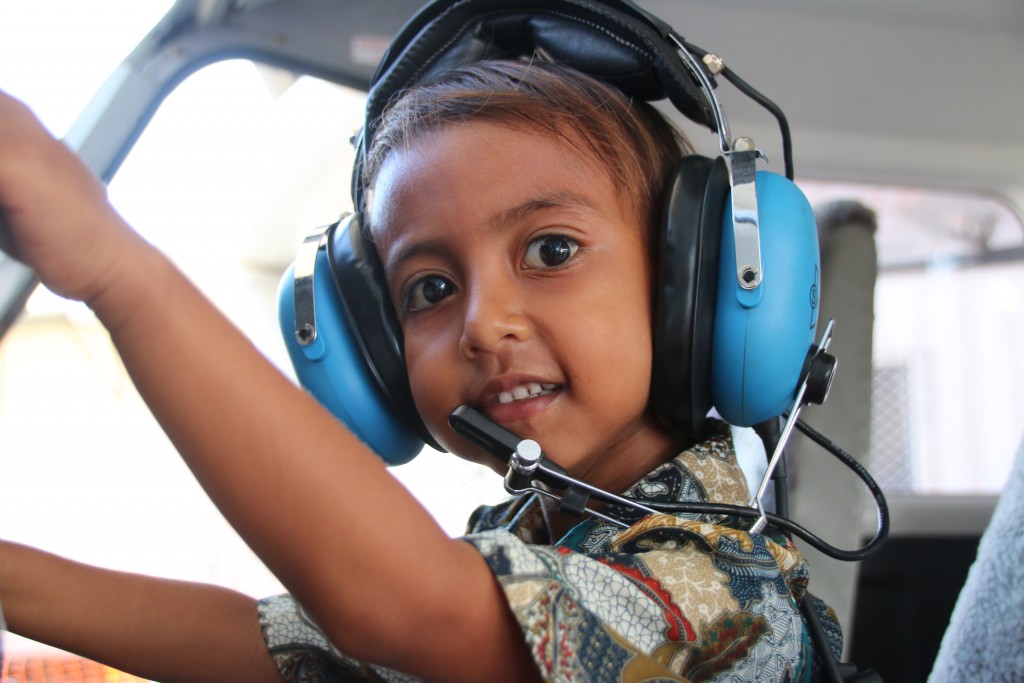
The group had a picnic lunch in the hangar, watching the larger planes come and go, and still wanting more opportunities to play pilot, by sitting in the planes. The excitement levels rose again when pilot, Daniel Moser, took the plane out of the hangar to do his pre-flight checks on the aircraft. Watching the lights turn on and the propeller begin to turn had many students spell bound. We would have loved to stay to watch the plane take off, but unfortunately the booked charter flight for that day continued to be delayed, so that wasn’t possible. So all our friends returned home to Hera again after their first visit to the airport.
Deborah once remarked that she was living in Timor-Leste because that’s where God and MAF had led her and Daniel as a couple. It was Daniel’s role as a pilot that has them living in Dili and Timor-Leste, but how exciting it is to know that God’s plan for them included a role for Deborah that perfectly matched her skills, passions and qualifications.

